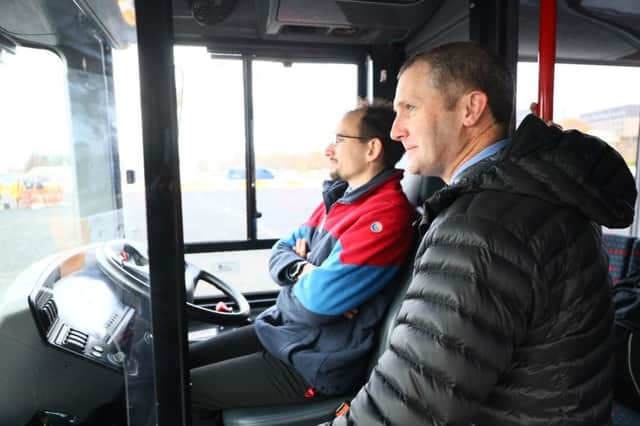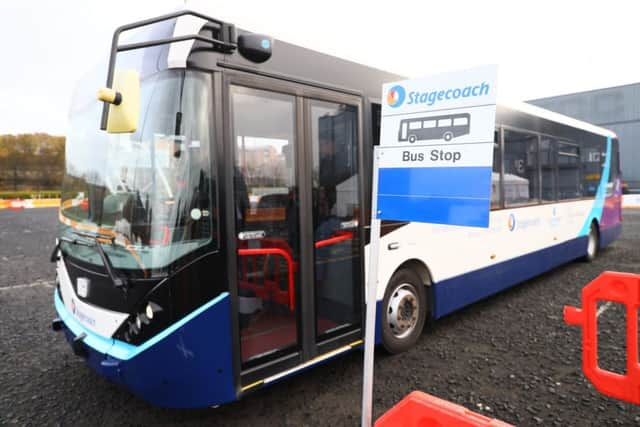Self-driving vehicles: Why won’t they let me test what happens when a pedestrian steps in front of them? - Alastair Dalton


It’s not science fiction any more. The self-driving cars you’ve seen in films are here – and they’re getting closer to you and me. I know this because an autonomous minibus and car like the ones I was lucky enough to try out in Helsinki last year appeared in a Glasgow car park this week, as if they were following me.
The vehicles were being demonstrated along with a self-driving bus which is due to carry passengers between Fife and Edinburgh around this time next year. Boarding the bus for a gentle ride round the SEC car park, all seemed normal – apart from the maverick spinning of the steering wheel like something possessed, and far faster than any driver I’d seen manage.
Advertisement
Hide AdAdvertisement
Hide AdIf that brought back premonitions of the future from past movies to some, it certainly spooked a few on Twitter.


One person tweeted: “Seriously! Terminator 2 is slowly playing out right before our eyes and absolutely nobody is addressing it.”
There was also bemusement about why the driver was being retained for the cross-Forth trial (for safety), but concern, too, about their long-term employment prospects.
But it is all happening – from the driver-assist safety aids already fitted to many cars to help avert collisions to the robot vacuum cleaners which I’m told very effectively clean spaces like restaurants.
Also in the car park was a large, green, elongated egg on wheels – an autonomous delivery vehicle that I’m told was deliberately designed to turn heads and create the excitement of an ice cream van’s arrival.
Legal implications
People in the Greenwich area of London have already had packages delivered by slow-moving pavement vehicles. Now, the road-running Kar-go can go at up to 60mph to rock up wherever you are. Click on a mobile phone app and, hey presto, it opens up to reveal your parcel like a mobile deposit locker.
Running alongside the car park gizmos, a conference has been held this week at the SEC to help the transport industry get their heads around Connected and Autonomous Vehicles, or CAVs, as they are known in the trade.
Even the Scottish Law Commission and its southern counterpart have been pondering the legal implications of this new-fangled form of mobility.
Advertisement
Hide AdAdvertisement
Hide AdWhat about people who walk out in front of a CAV, they ask, knowing its sensors will be triggered and the vehicle will stop for them?
I hear some experts believe CAVs will be a disaster in Glasgow, the world capital of free-range pedestrians (I’ve been told off enough times for calling them “jaywalkers”).
I tried to put that to the test with the self-driving bus, because the Finns who I’d asked to do it last year with their minibus in Helsinki responded in a disappointingly desultory way.
This week, after persuading one of the officials to try it in Glasgow, he then apologised that he would have been quite happy to step in front of, well, at least that bus, only that the insurers wouldn’t cover it.
If you’re worried this is all getting a bit surreal, the two law commissions have adopted their own name for the tech – Highly Automated Road Passenger Services, or HARPS. Its logo? A harp on wheels. Jessica Uguccioni, a lawyer at the Law Commission of England and Wales, admitted it looked a bit like the Guinness brand.
Whatever the symbolism, the two commissions are very keen to hear the public’s views about this new world bearing down on us on the roads – so do have a think.